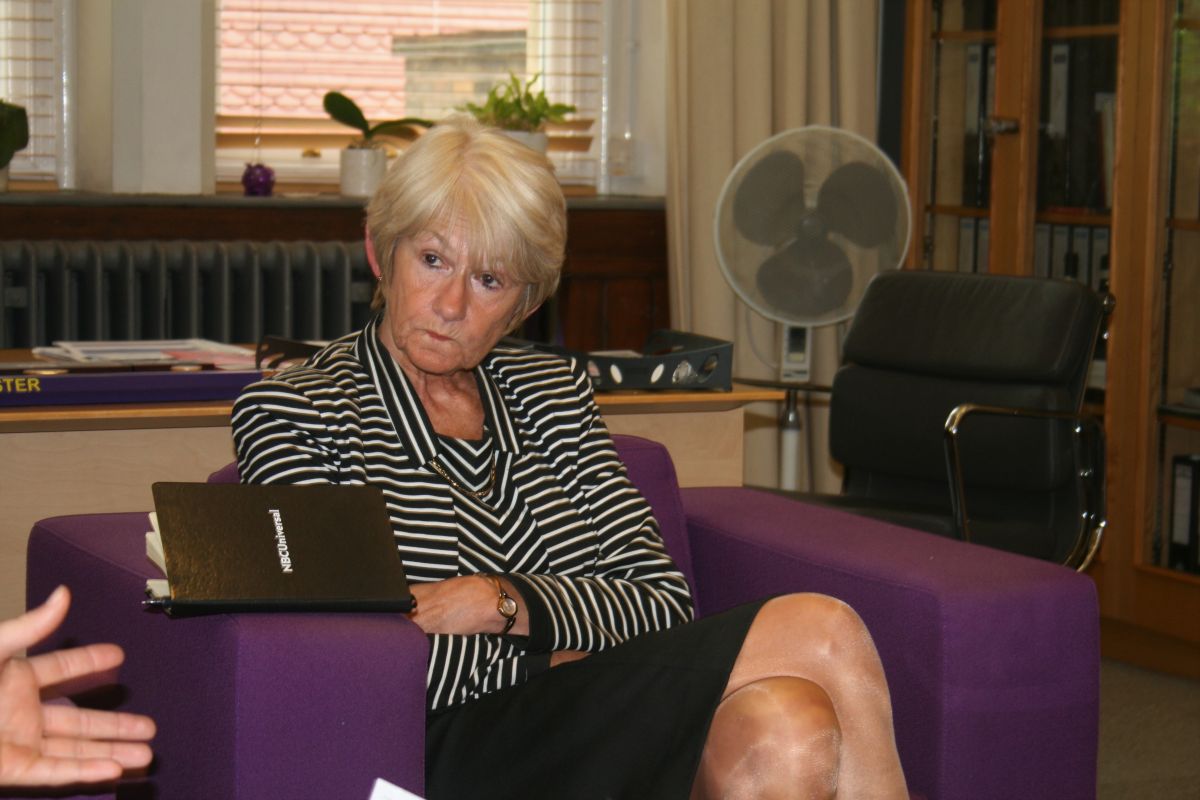Opinion: Nancy is not the only one to blame

With calls for a referendum asking students whether they agree that “the student body has no confidence in Vice-Chancellor Dame Nancy Rothwell and other university leaders”, it has been brought into question who is really to blame for the university’s failings.
This vote of no confidence fails to include other university leaders who potentially hold more power than Rothwell, and played a larger role in the university’s poor response during the pandemic.
Within the university’s governance structure, the Board of Governors, headed by Edward Astle, are at the top. They hold the most decision-making power. The Vice-Chancellor acts as the head of the Planning and Resource Committee (PRC). In turn, this acts in an advisory role to the Board and is held accountable to it. According to the university website, “the PRC serves as the primary source of advice to the Board of Governors”.
This brings into question the extent of the role Nancy has in University decision making. Clearly, as an advisor, she plays some part in this decision-making process. Yet, it is wrong to place such extensive blame on her as an individual. An entire board of governors are also complicit in the university’s recent failings. The actions and decisions of a prime minister or a government would not be blamed on their advisors. So, why are all the actions of the university being blamed on someone who acts in a similar advisory role?
It seems as if Nancy Rothwell is a convenient scapegoat for the poor decisions of a much larger leadership structure. Her removal, then, could result in an easy escape from accountability for the rest of the board.
Much of the ‘Nancy Out’ campaign focuses on the broken promises of blended learning with partial on-campus teaching. For most students at the university, there has been no access to on-campus teaching at all, despite it being promised at the beginning of the academic year. Most of the blame for this issue has been pinned on Rothwell. However, minutes from the board meeting on the 7th of October show that this was a decision made between the university, Manchester Metropolitan University, the director of public health, and the local public health team, as well as the board of governors.
Therefore, it is wrong to place all accountability for this decision on Nancy Rothwell. Many others were involved in this choice. This oversimplification of issues and use of an individual scapegoat sets a dangerous precedent. It fails to examine the root causes of these issues, and therefore allows them to repeat themselves. This brings into question whether the referendum and the possible result of removing this very public figure will simply create the illusion of progress, rather than establishing necessary change.
“From personal experience, this lack of support was evident. We were offered little to no help in getting food. We were instructed to use food delivery services with limited slots. This left us with a three-day wait, or asking friends to buy our food.”
Another argument for the ‘Nancy Out’ campaign centres on the university’s failure to provide isolating students with sufficient support when Fallowfield became the number one Covid hotspot in the country.
From personal experience, this lack of support was evident. We were offered little to no help in getting food. We were instructed to use food delivery services with limited slots. This left us with a three-day wait, or asking friends to buy our food. In addition to this, a student was moved into our flat whilst we were isolating despite us informing the university that we had tested positive. This mishandling was not just an individual experience, but a wider issue across campus.
However, putting all the blame for this on Nancy excludes board members involved in making these decisions from any accountability. In the minutes for a board meeting, it is stated that “students who were self-isolating were provided with support”. Yet this is disputed by the experiences of many. As a result, it is indicated that the board itself were complicit in ignoring these issues and failing to provide further support. Both the chair of the board, Edward Astle, and the vice-chair, Ann Barnes, were present at this meeting, as well as Nancy Rothwell. Both members arguably hold more decision-making power than her. So why aren’t they being held accountable to the same extent as she?
It is evident that Rothwell was involved in the university’s failings and poor decision making. However, it seems that her involvement is somewhat overstated in comparison to other board members. She seems to be used as a scapegoat for the rest of the Board. Her removal could be dangerous, as it protects others from accountability despite their evident involvement. Others are at fault for these issues as well as Nancy, so why is she the only one being blamed?







